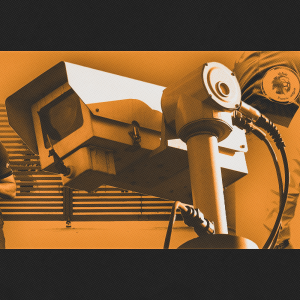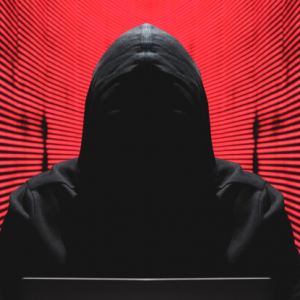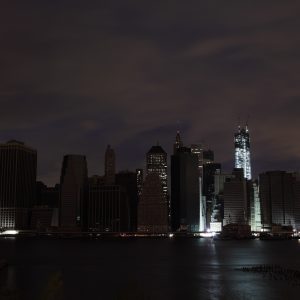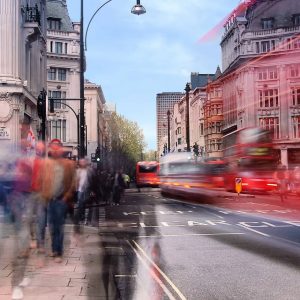4 weeks until the XXIII Winter Olympics
Welcome back to work! We hope you had a happy holiday. Following the fun of the festive season, it is time to turn our attention to the next momentous event on the horizon.
As you may know, the XXIII Winter Olympic Games will be held in Pyeongchang, South Korea, from 9th – 25th February 2018. To ensure this landmark occasion remains as safe as possible, Blackstone Consultancy have been preparing to deploy our security teams to the region to support all of our clients who will be in attendance.
Although Pyeongchang is a relatively obscure county in Gangwon province of South Korea, it faces an ever looming threat from North Korea. In fact, Pyeongchang is only 50 miles (80 Km) south of the Demilitarised Zone (DMZ) which is situated between the Northern and Southern parts of the Korean Peninsula.
Over the past 20 years there have been multiple confrontations between North and South Korea. Kim Jong-un, the supreme leader of the Democratic People’s Republic of Korea (North Korea), is part of the Kim dynasty which has ruled North Korea through a ‘cult of personality’ for decades. Government officials and members of the public alike must show proper respect to the regime or else face strict penalties. Demonstrations of intense devotion to these leaders, as well as exhibitions of strength in the form of military parades and weapons testing, have resulted in a series of international incidents between North Korea and the rest of the world.
Many of the conflicts between North Korea and South Korea occur within the parameters of the DMZ or the Northern Limit Line (the maritime border between North and South Korea). However, visitors to the Winter Games must also consider a new threat in the form of North Korea’s sophisticated cyber army.
North Korea have been publicly accused by the White House of launching the ‘Wannacry’ ransomware attack which infiltrated over 230,000 computers in more than 150 countries in May 2017. Pivotal organisations, such as Britain’s National Health Service (NHS), the American logistics company FedEx and the Spanish telecoms company Telefonica, were all crippled by this sophisticated ransomware attack.
Although North Korea have strongly denied these allegations, officials believe that the next target in their sights could be the Winter Games. As Priscilla Moriuchi, director of strategic threat development at Recorded Future, told the Telegraph;
“[The] desire to target South Korea and create chaos that would undermine South Korea’s image is still very much a goal for North Korea”.
In anticipation of a potential attack, Pyeongchang’s organizing committee for the Winter Games (POCOG) has hired a private cyber security firm to intercept any hacking attempts. In a two pronged defensive strategy, South Korea have also conducted a broad spectrum of security drills in front of the Olympic Stadium which cover all manner of terror attacks; from hostage situations and vehicles ramming the stadium to a bomb-attached to a drone.
We should expect some surprises from the rather belligerent North Korean regime as they know the world’s eyes will be poised on the Korean Peninsula. These exhibitions of strength could result in cyber attacks, further missile launches or possibly even underground testing.
North Korea would be less likely to conduct weapons testing if their own athletes were in attendance at Pyeongchang. Fortunately, a monumental meeting recently took place in the South Korean side of the Panmunjom truce village of the DMZ. Five senior officials from each side met to discuss North Korea’s participation in the Winter Olympics and the improvement of inter-Korean relations. Officials later confirmed that North Korea will send the two North Korean figure skaters who qualified for the Games as well as delegation to the Winter Games in Pyeongchang in February 2018.
Another saving grace is that North Korea’s sole ally, China, will have athletes in attendance at the Winter Games. As such, we can safely assume that North Korea will not attempt any short-range incidents such as artillery or short-range rocket attacks across the border. Any such attack would be a direct escalation against the entire international community which would force repercussions from the UN and an equally outspoken POTUS.
With all of the tensions surrounding North Korea, it might be easy for visitors to overlook traditional security risks that should be considered when travelling to all foreign regions. Consequently, Blackstone Consultancy have spent the last 18 months completing security assessments on behalf of our clients travelling to Pyeongchang. By following the guidelines listed below, visitors can be ready to resolve any security issues that may arise throughout their stay.
Contingency planning
Familiarise yourself with local procedures and protocols prior to travelling, such as civil emergency exercises. You can remain updated on all our South Korean travel advice by receiving message alerts through our partnership with GardaWorld and their Crisis24 alert system.
Documentation
Ensure you have easy access to your passport and other important documents such as nationality, birth and marriage certificates. Create a file on a cloud provider so you can access copies of these vital documents in the event that your originals are lost or stolen.
Civil emergency exercises and advice
Due to ongoing tensions with North Korea, South Korean authorities often conduct civil emergency exercises. Sirens are sounded, transport is stopped and individuals take shelter indoors within designated metro stations or basements. It is important that you identify these shelters in Seoul which will be marked with the following symbol;

Although foreign nationals are not obliged to participate in these exercises, it is important to follow any instructions given by local authorities.
Fortunately, the South Korean government has developed a smartphone application with civil emergency advice such as shelter locations, alarm specifications, medical facilities and emergency services. Simply search for ‘emergency ready app’ via Android or Apple app stores to equip yourself with this essential resource.
Crime
It is reassuring to know that crimes committed against foreigners in South Korea are a rare occurrence. However, as one can never be too careful , it is advised you take note of emergency service contact lines. Should you need emergency assistance, or to report a crime, call 112 for police (a 24-hour interpretation service is available) and 119 for ambulance and fire.
Road travel
Planning to drive whilst in South Korea? You will need an International Driving Permit and fully comprehensive insurance. It is imperative that you acquire this important documentation prior to leaving home for Pyeongchang.
Mobile telephones
Before travelling to South Korea, you should check with your mobile phone provider about regional network coverage. After all, many older (non-3G) phones bought outside South Korea will not normally work in the country and fitting foreign phones with local SIMs (e.g. to avoid roaming fees) is not usually possible.
Cultural differences
Respect local customs and dress codes for South Korea so that you do not inadvertently offend residents whilst abroad. For example, in Asian countries interrupting someone whilst they are talking is regarded as a major social faux-pas which would cause the speaker a massive loss of face. Maintain amiable relations with members of the public and government officials alike by researching and upholding these cultural differences throughout your stay in Pyeongchang.
Health
South Korea has a well-developed medical and hospital infrastructure which is equipped to offer travellers a very good standard of care. Nevertheless, you should always check you have valid travel insurance to cover any medical emergencies that you could incur whilst abroad.
Ultimately, travelling to South Korea for the Winter Games should be a relatively safe and secure process if you are prepared and well briefed. Ongoing conflicts with North Korea aside, you should be able to allocate provisions for any incident if you heed the precautions outlined in this article. As long as you have a contingency plan, access to copies of your documentation and the relevant contact numbers, your trip to South Korea should be no different than any other international business excursion.
North and South Korea agree to send athletes to Winter Olympics
This announcement comes as a breakthrough moment as North and South Korean officials shook hands in a meeting in the truce village of the Demilitarised Zone. This is the first formal talks between the two conflicting countries for more than two years, which took place on Tuesday confirming the North will send their athletics and delegation to the upcoming Winter Olympics in the South.











